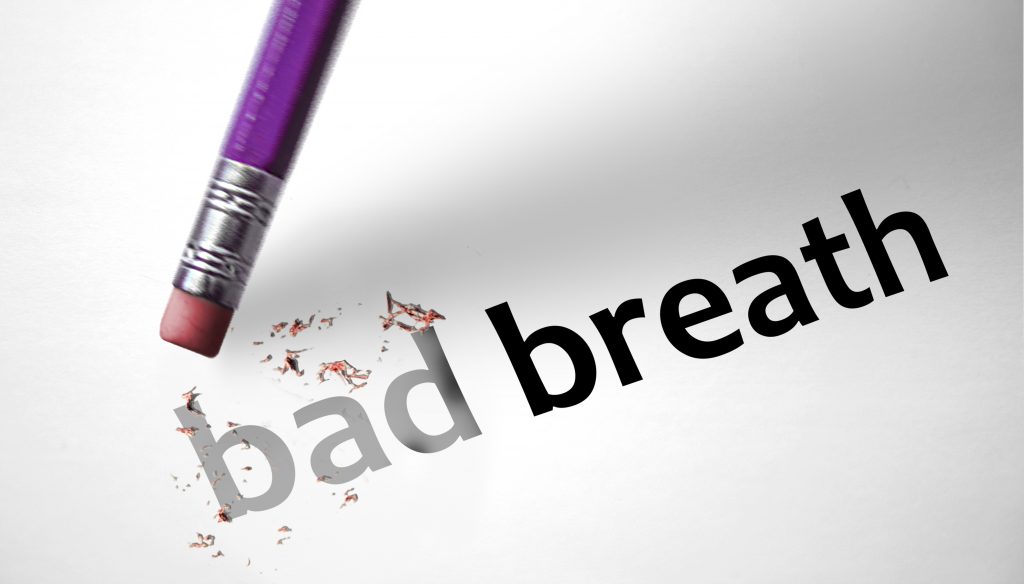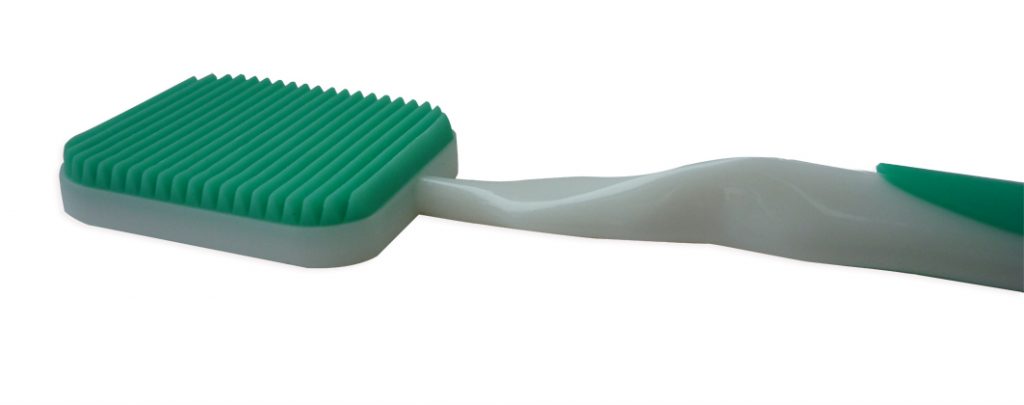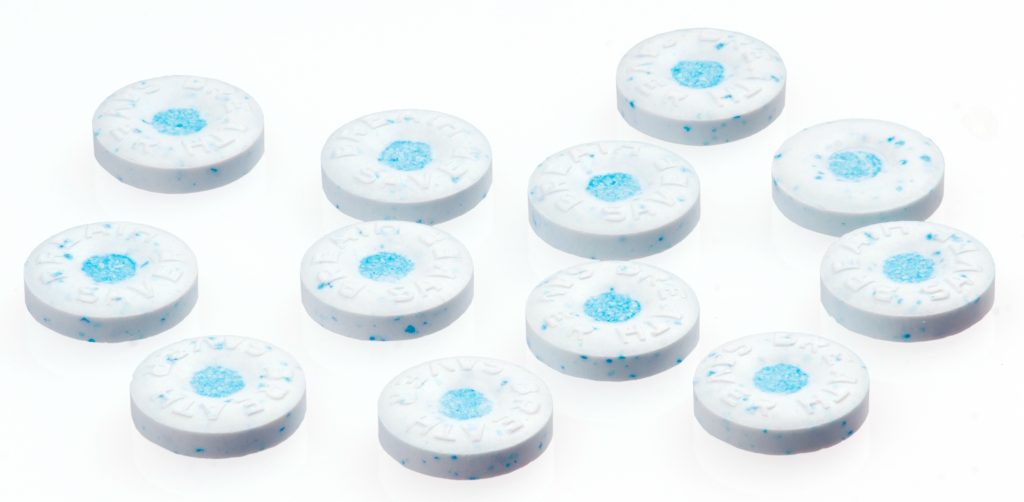7 Tips for Beating Bad Breath
-

Bad breath (also known as halitosis) is an extremely common oral health condition that most people deal with in some capacity from time to time. The occasional instance of bad breath is readily corrected, while more serious chronic cases tend to require a bit more work.
What causes bad breath? There are a number of factors, but biologists have identified the primary culprit: bacteria in the mouth. When the waste that is produced by these bacteria comes into contact with the air, the result is an unpleasant odor; i.e., bad breath.
Here are seven tips for combatting bad breath:
-
1. Good Dental Hygiene

The best way to prevent bad breath is to maintain healthy dental hygiene habits. This includes brushing your teeth at least twice a day (sometimes after eating as well) and flossing between the teeth at least once a day. Antiseptic mouthwash should also be used in the morning and the evening. Food debris creates an ideal environment for bacteria. Beyond bad breath, this can lead to tooth decay and gum disease.
-
2. Get a Tongue Scraper

Tongue scrapers are used to scrape mucus buildup from the back of the tongue where it might not be readily seen. Excess mucus on the tongue can be a perfect breeding ground for bacteria and a common source of bad breath.
-
3. Maintain Dental Appliances

Dental appliances such as braces, retainers, dentures, etc. should be cleaned and maintained regularly in accordance with instructions provided by your dentist. (This is especially important for removable dental appliances that you take out at night.)
-
4. Hydration, Hydration, Hydration

Drink plenty of water throughout the day to help maintain a healthy pH balance in the mouth and wash away any debris. Drinks that are high in sugar (fruit juices, sodas, etc.) can have the opposite effect by actually promoting bacteria growth.
-
5. Eat Right

Maintaining a healthy diet is crucial for avoiding bad breath. Foods that help to promote saliva flow can stem the development of bacteria (think vegetables). This is particularly important when it comes to breakfast. Starting your day with a healthy breakfast helps get saliva flowing in the mouth after a night’s sleep.
-
6. Don't Ignore Dry Mouth

Dry mouth is another common condition that can be caused by a number of things such as medications, medical conditions (like diabetes), or even emotional stress and anxiety. Aside from creating an unpleasant sensation in the mouth, dry mouth also inhibits saliva flow and leads to bacteria growth. If you suffer from chronic dry mouth, speak with your dentist about what treatments might be available. By dealing with the dry mouth issue, you might be able to correct the corresponding bad breath issue.
-
7. Use Breath Aids

Simple as it may seem, there’s no arguing against the effects of gum, mints or mouth sprays/rinses. Though these should not be used in excess and may only offer a short-term solution to bad breath, they also can boost saliva flow which can help the overall pH balance in your mouth.









